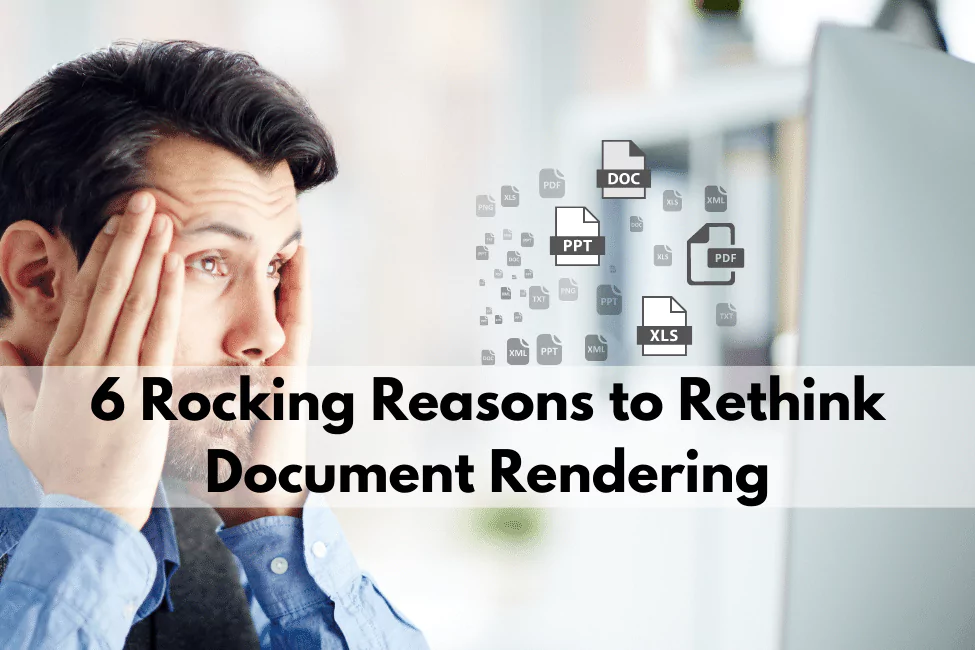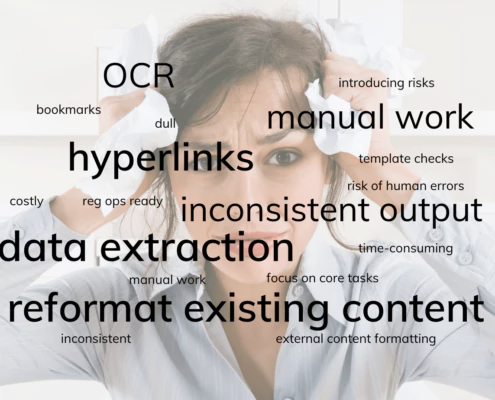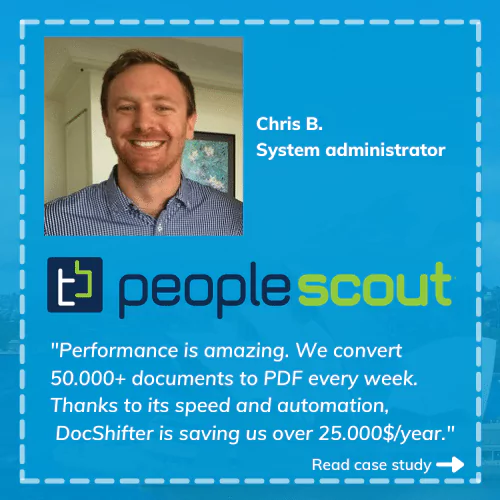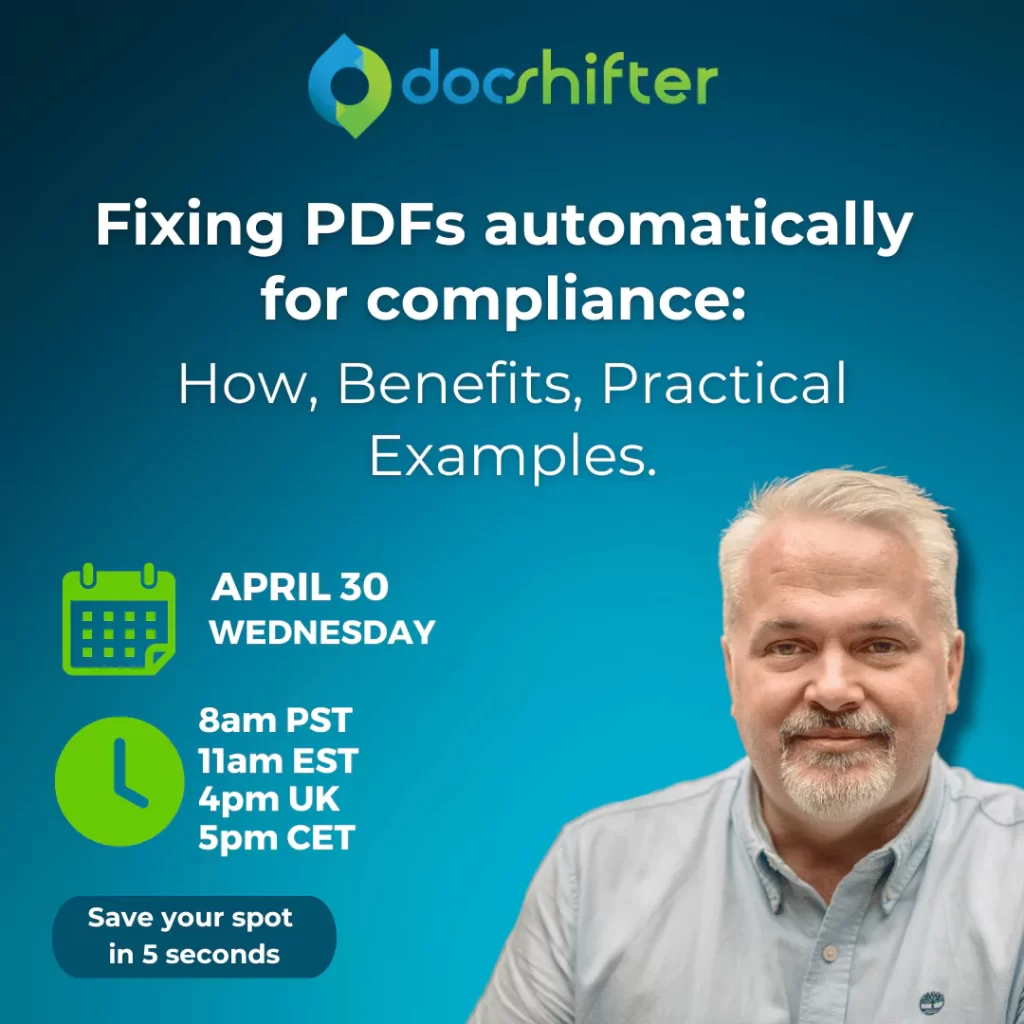
6 Rocking Reasons to Rethink Document Rendering
-
By DQdev3
- 4 minutes read
In knowledge-driven industries, the need for standardization is often forced by regulators. For example, in Life Sciences, the introduction of the electronic Common Technical Document (eCTD) has accelerated the move from paper to electronic formats; mainly to PDF.
In other industries, the need to archive documents has led to massive content transformation as well. Transformation to de facto standards such as PDF/A ensures that documents are secure for the long term.
Many large companies have had these content and document rendering solutions in place for several years already. These solutions that are in place today, were often implemented along with the document management system.
The ever-growing popularity of artificial intelligence and machine learning, data extraction, OCR and many more. These are the reasons why many companies are reviewing their document management strategy. Some have already started to review their document and content conversion strategies as well.
We have asked these leading companies what made them rethink their strategy and question the solution set that was in place.
- The current conversion process is slow, and a resource hog. There are many applications (MS Office, Adobe, …) needed to convert from one file format to another. This slows down the entire process and results in higher software and infrastructure costs.
- The conversion process does not scale and has a hard time dealing with peak loads
The infrastructure is often oversized (companies end up having & managing 3x more infrastructure than actually needed). These systems are also sitting idle most of the time, leading to additional costs.
- Content and document rendering is very resource-intensive. Many old systems are suffering from memory leaks. Machines need to be restarted manually to deal with these. Time is lost in manual interventions. This slows down the entire conversion process.
-
The number of input formats per tool is limited. That is why organizations have to purchase and use multiple tools: to make sure they can deal with ever-growing number of file formats. Different document rendering solutions are used. This leads to inconsistent output and more manual work.
- Many companies see document enrichment as a separate process.
Done by multiple tools: OCR, creating bookmarks, adding headers & footers, adding security, merging and splitting documents, managing hyperlinks, creating and editing table of contents (TOC) and many more. This means more manual work and an increased risk of human errors. - Every user and every conversion server must have Microsoft Office, Adobe technology or other licenses installed, which has a big impact on licensing costs.
Often, the reason for these shortcomings is purely architectural. The document rendering solutions companies are using were designed years ago with a particular goal in mind but are not able to keep up with today’s:
- technology
- number of file formats
- requirements in terms of speed and scalability
Luckily, time has moved on, the world has evolved, and today there are alternatives.
At DocShifter, we bring you the world’s fastest any-to-any conversion solution. Reduce IT and infrastructure costs. Fully automate all your document rendering and enrichment processes. Eliminate dependencies on Microsoft Office and Adobe technology to convert from one format into another. Auto-scale up and down resources whenever you need them.
Time to rethink.
About DocShifter
Speed, quality, scalability, and configurability are reasons why Life Sciences organizations choose DocShifter to generate technically compliant, submission-ready PDF. High volume, high-quality document conversion, on-premises, or in the cloud. Super easy to set up. Automate. Centralize. Eliminate manual intervention. Reduce Risk. Reduce IT infrastructure costs. Rated 5 starts on Gartner’s Capterra platform.

 The infrastructure is often oversized (companies end up having & managing 3x more infrastructure than actually needed). These systems are also sitting idle most of the time, leading to additional costs.
The infrastructure is often oversized (companies end up having & managing 3x more infrastructure than actually needed). These systems are also sitting idle most of the time, leading to additional costs.


